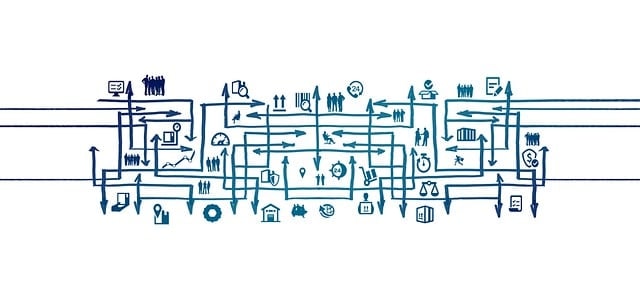

The Nocode Revolution: A Project Manager's Perspective
Published on December 12, 2024
By Marianella Saavedra Terkes · 9 minute read

Transforming Digital Development Through NoCode Leadership
The software development landscape has undergone a remarkable transformation with the rise of NoCode platforms. As a Project Manager at Kreante, I’ve witnessed how this revolution is reshaping not just how we build software, but how we approach project management itself. NoCode platforms empower individuals and teams to create complex applications without traditional coding, significantly reducing the time and resources needed for software development. This democratization of technology allows a good project manager to focus more on strategic planning, resource allocation, and stakeholder communication, rather than getting bogged down by technical complexities.
Project management methodologies such as Agile, Scrum, and Waterfall play a crucial role in guiding project planning and execution.
This evolution brings new challenges, such as ensuring the scalability and security of NoCode solutions, but it also offers opportunities for innovation and efficiency. By embracing NoCode tools, project managers can streamline processes, enhance collaboration, and deliver digital solutions that meet client needs with greater agility. The NoCode movement is not just a shift in technology; it’s a transformation in how we think about and execute project management in the digital age.
The Art of Technical Leadership Without Coding Expertise
One of the most significant challenges I've faced as a Project Manager in the NoCode space is navigating technical complexities without a traditional development background. When clients present technical requirements or challenges arise, my approach involves:
Deep Research and Continuous Learning
Every project brings new technical concepts that require understanding. Rather than seeing this as a limitation, I’ve turned it into an opportunity for growth. I regularly dedicate time to researching NoCode platforms, understanding their capabilities, and learning about new features that could benefit our clients.
Success in NoCode project management isn’t about knowing everything – it’s about knowing how to facilitate solutions and developing essential project management skills. I’ve developed strong relationships with our technical team members, creating an environment where questions are welcomed, and knowledge sharing is constant. Regular team meetings play a crucial role in this process, ensuring everyone is aligned and informed. My role often involves bridging the gap between technical possibilities and client expectations. This requires developing a unique skill: the ability to understand technical concepts well enough to explain them clearly to non-technical stakeholders.

The Power of Constant Communication
Creating Effective Communication Channels
In the dynamic realm of NoCode development, effective communication is the foundation of success. I've adopted a comprehensive multichannel strategy that encompasses regular check-ins, transparent documentation, and immediate access channels. By providing weekly status updates, we ensure that everyone remains aligned with project goals and progress, thus fostering team building and collaboration.
Utilizing tools like Notion for detailed project documentation allows all team members and stakeholders to access up-to-date information. This ensures that everyone is informed and on the same page, enhancing the overall efficiency of the project management process. By maintaining open lines of communication through platforms like Slack, we can swiftly address questions and concerns, promoting a collaborative and responsive work environment.
Incorporating these communication strategies not only streamlines project management but also strengthens the team's ability to adapt and respond to evolving project requirements. This approach underscores the importance of clear and consistent communication in achieving project success and client satisfaction in the fast-paced world of NoCode development.
Managing Client Relationships in the NoCode Era
The Art of Active Listening
One of the most valuable lessons I've learned is the importance of truly listening to clients. This means understanding underlying needs, as often what clients request isn't exactly what they need. Through careful listening and questioning, we can uncover the real requirements behind their requests. It's also crucial to avoid assumptions, as in NoCode development, assumptions can be particularly dangerous. Every requirement needs to be clearly understood and documented to ensure successful project outcomes.
Building Trust Through Transparency
My approach to client relationships is built on complete transparency. Project managers are essential in navigating complex projects, ensuring effective governance, and maintaining clear communication with stakeholders while aligning with strategic goals and project management methodologies. This includes:
Clear Communication About Limitations
Being upfront about what NoCode platforms can and cannot do helps manage expectations effectively. By setting realistic expectations from the start, we can avoid potential misunderstandings and ensure that clients are fully aware of the capabilities and limitations of the technology. This transparency builds trust and fosters a collaborative environment where clients feel confident in the project's direction.
Regular Progress Updates
Keeping clients informed about both successes and challenges maintains trust and engagement. Regular updates, whether through meetings, emails, or reports, allow clients to stay connected with the project's progress. This ongoing communication ensures that any issues are addressed promptly and that clients have the opportunity to provide feedback and make informed decisions.
Besides these strategies, it's important to establish a strong rapport with clients by being approachable and responsive. Actively listening to their concerns and providing thoughtful solutions demonstrates our commitment to their success. By prioritizing client relationships and maintaining open lines of communication, we can create a positive and productive partnership that leads to successful project outcomes.

Turning Challenges into Opportunities
Technical Challenge Navigation
When faced with technical challenges, I’ve developed a systematic approach:
Thoroughly understand the issue
Research possible solutions within our NoCode toolkit
Consult with technical team members
Present multiple solution options to clients
In addition, establishing a project management office (PMO) can significantly enhance the efficiency and effectiveness of addressing these challenges.
Presenting Multiple Solutions and Strategic Recommendations
Every challenge presents an opportunity to showcase value in project management. As a project manager, I prioritize offering clients multiple options when addressing issues. By presenting various approaches, each with its distinct advantages and disadvantages, I ensure that clients have a comprehensive understanding of the potential solutions.
This not only demonstrates the versatility of project management specialists but also empowers clients to make informed decisions. In addition to presenting options, I provide clear recommendations based on thorough analysis. This involves evaluating each potential solution's feasibility, risks, and alignment with project goals. By offering a well-considered path forward, I help clients navigate complex projects with confidence and clarity. This approach underscores the importance of strategic thinking and resource allocation in effective project management.
Implementation Roadmaps and Client Satisfaction
Finally, I outline detailed implementation roadmaps to guide the execution of the chosen solution. These roadmaps serve as a blueprint for success, detailing the necessary steps, timelines, and resource requirements. By ensuring that all team members are aligned with the implementation plan, we can efficiently manage resources, track progress, and adapt as needed to achieve project goals.
This structured approach facilitates client satisfaction and enhances the overall success of the project management process. Measuring success through client satisfaction is crucial, and one of the most rewarding aspects of my role has been maintaining consistently high client satisfaction ratings. This success comes from practicing proactive communication and addressing potential issues before they become problems.
Regular feedback collection is essential; actively seeking and acting on client feedback throughout the project lifecycle ensures that we are meeting their needs. Continuous improvement is also a key factor, as we use feedback to refine and improve our project management processes, ultimately leading to better outcomes and higher client satisfaction.

Measuring Success Through Client Satisfaction
Achievement Through Client Feedback
One of the most fulfilling aspects of my role has been consistently achieving high client satisfaction ratings (4.5-5 stars). This success results from engaging in proactive communication, addressing potential issues before they escalate into difficulties.
Moreover, knowing the right moments to seek client feedback throughout the project lifecycle is essential for meeting their needs effectively. By strategically timing feedback requests, we can gather valuable insights that inform continuous improvement and refinement of our project management processes. This approach enhances project outcomes and boosts client satisfaction by demonstrating our commitment to their success.

Best Practices for NoCode Project Management Success
Based on my experience, here are key practices that lead to successful NoCode projects:
Active Listening: Take the time to truly understand client needs and concerns.
Question Everything: Avoid making assumptions about requirements or expectations.
Document Thoroughly: Keep clear records of all decisions and discussions.
Present Solutions: Always come prepared with alternative approaches to challenges.
Stay Flexible: Be ready to adapt your approach based on project needs.
The Future of NoCode Project Management
Evolving Role of the Project Manager
The evolving role of project management professionals in the NoCode era emphasizes the need for continuous learning and adaptability. As NoCode platforms advance, project managers must stay informed about new tools and capabilities, integrating them into project strategies.
The Project Management Institute offers resources and certifications, like the PMP, to aid career growth. Strong soft skills, such as communication and leadership, are crucial for bridging technical teams and stakeholders. Building networks with technical experts is vital for navigating complex projects. Project managers must balance technical knowledge and interpersonal skills to lead projects successfully.

Conclusion
The NoCode revolution has reshaped software development and project management, emphasizing the need for a blend of skills: technical understanding, effective communication, and the ability to turn challenges into opportunities. As a Project Manager in the NoCode domain, success lies in facilitating solutions, ensuring clear communication, and maintaining client satisfaction. By focusing on these principles and staying adaptable, project managers can navigate the opportunities that NoCode development presents.
The future of NoCode project management is bright, requiring continuous learning and strategic thinking. Project managers must stay informed about new tools and capabilities through ongoing education. They play a crucial role in fostering collaboration and creativity within teams, leveraging collective expertise for project success.
In the NoCode environment, a successful project manager must effectively manage client expectations, cultivate robust relationships, and prioritize client satisfaction. Successful project managers excel by being transparent about project constraints and actively listening to feedback, which aren't just best practices—they're the foundation of lasting partnerships. By fully embracing the NoCode revolution and continuously honing their project managing skills, they don't just guide their teams—they empower them to transform bold visions into reality, creating solutions for complex projects that once seemed impossible. In this dynamic landscape, they aren't just managing projects; they're architecting the future of digital innovation, one successful delivery at a time.










